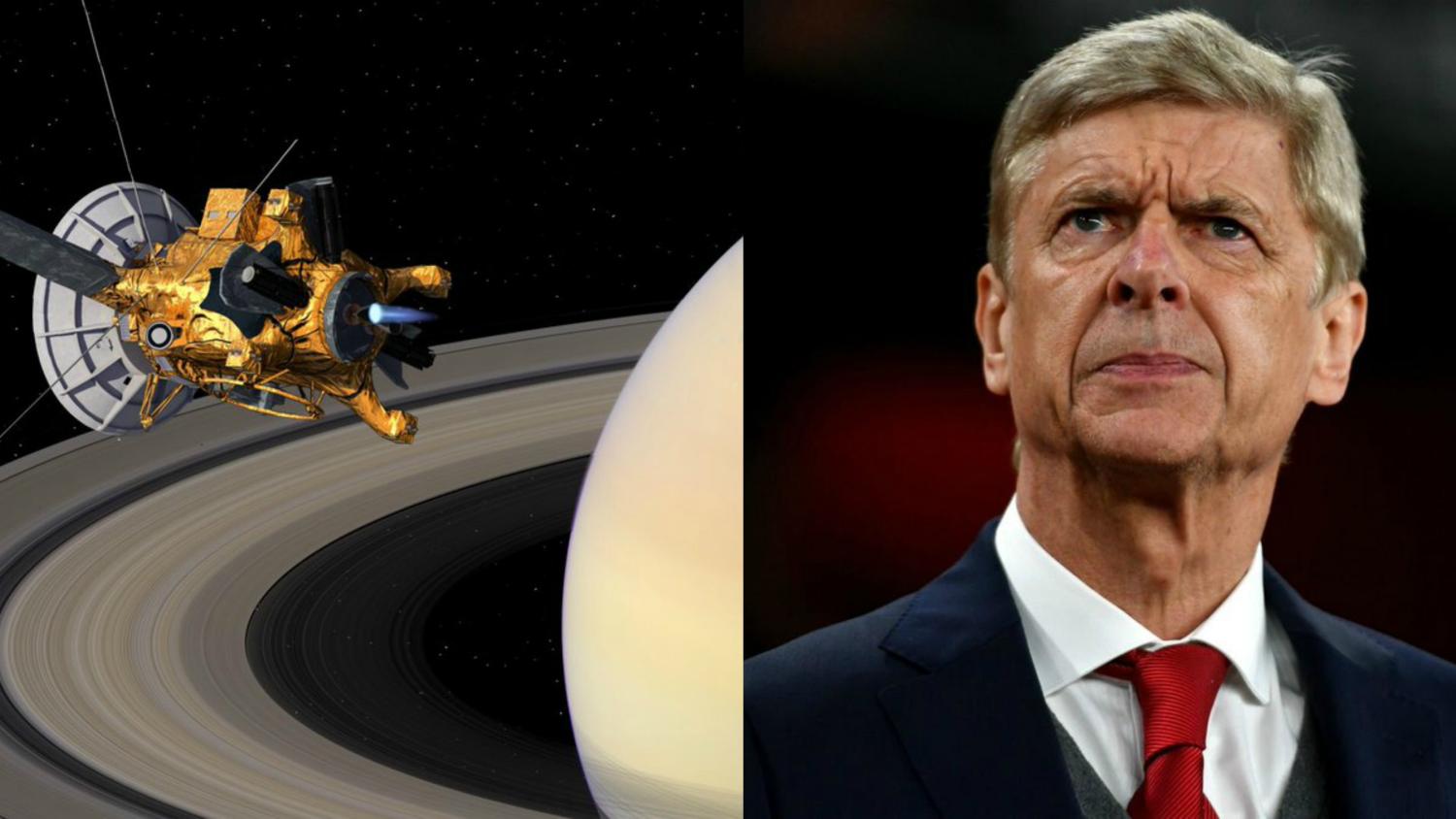The long-serving NASA spacecraft Cassini-Huygens made its final probe of Saturn early Friday as it crashed into Saturn, burning up in the atmosphere to disintegrate every shred of evidence a human-made object ever orbited the most fascinating planet in our solar system (Earth aside) and protect possible life on the planet’s moons from being contaminated by humans.
The long-serving Arsenal manager Arsene Wenger should probably follow Cassini’s example, to protect possible life at the Emirates Stadium from outside invasions.
Cassini launched from Earth on Oct. 15, 1997, exactly one year and two weeks after Wenger officially took the reins of Arsenal. Cassini arrived in Saturn orbit on June 30, 2004, the final day of the 2003-04 season, when the Invincibles went unbeaten and Arsenal won it’s last major championship.
For the next six years Cassini and Wenger probed around, trying to figure out some of the solar system’s greatest mysteries, such as whether biogenesis can occur outside of our planet or if you can win a football match without any defensive midfielders. Their discoveries included hydrothermal activity within Enceladus, brittle bones within Jack Wilshere, liquid methane seas on Titan and vast cash reserves at rival clubs.
Cassini sent the Huygens probe onto the surface of Titan, Saturn’s largest moon, much like Wenger sent his best players to clubs like Barcelona, Manchester United and Manchester City.
Starting in 2010, Cassini began a series of fly bys of Saturn’s many moons lasting seven years. During this period, Wenger’s Arsenal merely orbiting the bigger clubs like a waning moon, coming close to success but never really achieving it.
Cassini gave us Saturn, but also gave us Earth — as only deep space could reveal: Small. Frail. Lonely. Steeped in darkness. pic.twitter.com/zjF6jNUFyU
— Neil deGrasse Tyson (@neiltyson) September 14, 2017
Both Cassini and Wenger received multiple extensions long past their initially planned careers. Both brought huge changes to the way we think about the universe, from the dynamic and active rings surrounding Saturn to improving the diets and alcohol consumption of athletes. Both brought great beauty to spectators, be it incredible photographs of Saturn, its rings and its moons or beautiful and intricate passing displays from the Gunners.
Cassini is out of fuel. It had a great run. It’s time has come to an end.
Wenger is out of ideas. He had a great run. His time has come to an end.
It’s heartbreaking when you must bid farewell to those who have changed the way we see the world, to those who have taught us so much. But as they say, all good things must come to an end.
And what better way to go out than in a great ball of flame. Or in Wenger’s case, a nice glass of chartreuse.

 Home
Home


